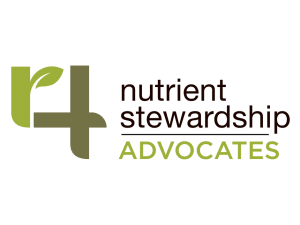Last week, TFI congratulated the 2023 4R Advocates. These are outstanding farmers and retailers, whose continued dedication towards soil management serves as evidence of the safe and beneficial use of fertilizer. The 4Rs, using the right source at the right rate, right time, and right place, allow for better nutrient use by plants, leading to greater crop productivity, reduced environmental losses, and greater farm profits. All of these are needed to ensure farming can be sustainable.
Sustainable farming is important because it helps to ensure the ongoing availability of healthy food sources, while preserving our environment and protecting the planet’s natural resources. Sustainability in agriculture is made up of three pillars: protecting the environment and natural resources, economic profitability and viability, and provision of ecosystem services necessary for farmers and society. 4R farming practices are a sustainable farming practice that helps to reduce the use, but increase the efficiency, of fertilizers. Using 4R practices, along with other sustainable farming practices, also helps to improve air, water, and soil quality, while promoting the long-term health of our planet.
4R is a sustainable farming practice that focuses on producing food in a way that is both environmentally friendly and economically viable. It is an integrated system for nutrient management that helps to conserve natural resources without decreasing food production. 4R also helps to maintain healthy soils by ensuring soils contain adequate nutrients for crops and prevents nutrient depletion that can be taxing on soil microbes. Other sustainable farming practices include reduced tillage, crop rotation, integrated pest management, and the use of cover crops. By using 4R practices, farmers can create a more efficient and profitable agricultural system that is better for the environment.
4R advocates are incredibly important, as they work not only to ensure that our food sources are healthy and viable for future generations but also to show both the public and policymakers that fertilizer can play a safe and responsible role in crop production. 4R advocates strive to reduce the environmental impact of fertilizer, increase yields, and improve the livelihoods of farmers and the health of their communities. They also work to ensure that the land and water are managed in an efficient and sustainable manner, as well as promote access to healthy, and nutritious food. Sustainable farming advocates are essential to ensure that our food systems are resilient and able to withstand the challenges of climate change and other environmental pressures.
More information on 4R farming can be found here.

